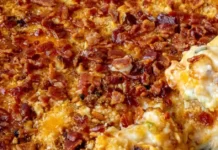Part of the secret of success is to eat what you like and let the food fight it out inside.” Food can be a source of happiness and distraction to many people the saying “Good Food Good Mood” is a practicality in life to a lot of people out there. Apart from the basic science that food provides us with proteins, carbohydrates, and fats the doctors that ask us to eat these can sometimes as us to refrain from them. You are only asked to refrain from a specific category of food in a bad health condition.
What is cataract eye surgery?
Eyes are given to us to look at delicious food what if eyes are the reason you are not able to eat a certain category of food? Here is a condition in which the lens of a person’s eye goes cloudy or blur causing vision problems. Cataract eye surgery is the cure to this condition the lens of a person is exchanged with a new intraocular lens. The condition usually shows up in people above the age of 60 as it occurs due to age-related muscular degeneration. And, an estimated 97% get a cure.
Abstain from the following food after cataract surgery:
1. Fried food: as they have high levels of unhealthy and inflammatory fats such food can be a cause of the delay in the healing process.
2. Stimulants: can cause an interruption in the way your medicine works – post cataract surgery. These stimulants make a person stay active and awake although the patient requires rest.
3. Salt intake: salt consumption can lead to inflammation which is counterproductive to recovery as salt can cause high blood pressure damaging organs.
4. Processed food: contain high amounts of sugar and salts thus the actual amount of essential minerals and nutrients the body and its organs require is not provided example, cakes, frozen meat, canned vegetable etcetera.
5. Simple carbs: can cause blood sugar levels to rise immediately. Such foods are high in calories but low in nutrients which may cause cataracts. An example of such food is white rice, white flour, fruits with high sugar content, and honey.
6. Tobacco smoking: smokers have higher risks of post-surgical contractions such as delayed wound healing and infections rather than non-smokers.
However, food can be a tool for healing procedures it is necessary to make sure that a person takes a balanced diet and good nutrient choice food.
food to eat after cataract eye surgery:
- Green leafy vegetables: they are high in antioxidants and can help reduce inflammation. They also have a high amount of lutein and zeaxanthin which are the main dietary compounds in the human retina.
2. Water: It is important to stay hydrated after surgery and doctors typically recommend drinking 2-3 liters of water a day
3. Fish: contain omega 3 fatty acids as they can lower the risk of eye disease as a whole. 2 serving of cold-water fish is recommended every week. Fish oil supplements can also be an alternative to fish
4. Citrus foods: can help maintain healthy blood vessels. Vitamin C is a natural antioxidant it fights of degenerative and inflammatory eye disease
5. Carrots: are good for overall eye health keeping eyes problems to a minimum
6. Whole grains: reduce risk of age-related muscular degeneration and chances of cataract are lower in people who consume grains at a daily base
A Diet Plan can also be helpful to many patients to clarify confusion amongst a category of food:
- All vegetables are advised to be consumed Except red chilies
- Dairy products such as skimmed milk and skimmed yogurt are to be consumed. Milk, Cheese, Buttermilk, and curd are to be avoided
- All oils can be consumed except for palm oil
- Honey as a sweetener can be consumed but not sugar
Faqs:
Q)Which type of lens is best for cataract surgery?
If a person is comfortable wearing sunglasses a mono-focal lens will work if he/she is not okay with sun glasses and have astigmatism, a toric lense can be appropriate.
Q) How many days of rest are essential after cataract eye surgery?
The healing time also varies from person to person for some might get a better vision within 24 hours. On the other hand some might take a couple of days to recover because of the diet they take.
Q)what are the most faced problems after the surgery?
Swelling of eyelids, bruising, discomfort, increased intraocular pressure, and an allergic reaction to antibiotic and steroid drip.
Q)How to protect your eyes after surgery?
Firstly, wear sunglasses in daylight. Secondly, while washing your face exclude the eye area. Using a disposable tissue to blow your face as using a cotton handkerchief increases the risk of infections. Also, avoiding strenuous activities for a month.
Q)Is there a proper diet after cataract surgery?
Leafy green vegetables, lean protein, healthy foods. While the foods you should avoid are sugars and high carbs diet.
Q)Is it fine to watch TV after cataract surgery?
Most patients are able to watch t.v after a short time period of surgery. However, one should not over-exert your eyes during the first 24 hours.
Q)What are the risks of cataract surgery?
The risk of cataract surgery might include swelling, blurred vision, infection, and detached retina. Lastly, for very few people around 1000 lose permanent sight
Q)What acts to avoid after surgery?
Avoid hot tubs, swimming, and dusting for 2-3 weeks. Wear sunglasses for at least 1 year after surgery.
Q)How does a cataract lens last?
The lens is likely to last for a lifetime. In fact, in most common cases the complications have nothing to do with lense.







